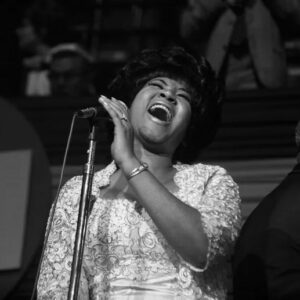Introduction
In the realm of modern entertainment, few names resonate as profoundly as Daniel Radcliffe. Best known for his role as the iconic Harry Potter, Radcliffe has not only captivated audiences with his remarkable talent but has also emerged as a powerful advocate for mental health awareness. In an era defined by rapid change and relentless pressures, the importance of mental health has never been more pronounced. With the increasing prevalence of anxiety, depression, and other mental health challenges, Radcliffe’s voice serves as a vital reminder of the importance of prioritizing mental well-being.
Daily Mindfulness Practices
One of the cornerstones of Radcliffe’s approach to maintaining mental health is his commitment to mindfulness and meditation. Incorporating these practices into his daily routine, he has found a sanctuary amidst the chaos of fame and the pressures of life in the public eye. Mindfulness, the practice of being present and fully engaged in the moment, can have profound effects on mental health.
Radcliffe has spoken about how he dedicates time each day to sit quietly, reflecting on his thoughts and feelings. This practice not only helps him to center himself but also significantly reduces anxiety levels. Research supports the notion that mindfulness can enhance focus and clarity, enabling individuals to approach their tasks with a more balanced perspective. By embracing this simple yet transformative practice, Radcliffe exemplifies how taking a moment to breathe can lead to a more grounded and peaceful state of mind.
Physical Activity and Its Impact
In addition to mindfulness, Radcliffe is a strong proponent of physical fitness. Engaging in a variety of activities—ranging from yoga to weight training—he understands that physical health is intricately linked to mental well-being. Regular exercise has been shown to release endorphins, the body’s natural mood lifters, and can serve as a powerful antidote to stress.
Radcliffe’s commitment to staying active not only supports his physical health but also provides an essential outlet for managing the stresses of his career. Whether he’s scaling a mountain or simply going for a run, he recognizes the importance of movement in maintaining emotional balance. Exercise, particularly in a high-stress environment, is vital for releasing pent-up energy and frustration, allowing for clearer thinking and emotional resilience.
Creative Outlets
Creativity is another significant aspect of Radcliffe’s life, and he has harnessed it as a therapeutic outlet. Whether through acting, writing, or exploring new projects, he finds solace and expression in creative endeavors. Engaging in artistic activities has long been recognized for its mental health benefits; it allows for self-expression and serves as a powerful form of emotional release.
Radcliffe’s diverse portfolio—from stage performances to independent films—reflects not only his versatility as an actor but also his desire to connect with deeper themes and narratives. By immersing himself in creative projects, he is able to process his experiences, explore complex emotions, and find a sense of purpose. This artistic engagement provides a vital balance in his life, fostering resilience and emotional stability in the face of challenges.
Seeking Professional Help
Perhaps one of the most significant aspects of Radcliffe’s mental health advocacy is his openness about seeking professional help. In interviews, he has candidly discussed his experiences with therapy, illustrating the importance of breaking down the stigma surrounding mental health. Many individuals struggle with the idea of seeking support, often feeling isolated or ashamed of their struggles. Radcliffe’s willingness to speak openly about his own journey encourages others to consider therapy as a viable option.
Talking about mental health can be incredibly empowering, and Radcliffe’s narrative serves to normalize these conversations. By shining a light on the importance of professional support, he invites others to seek the help they need without fear of judgment. This openness fosters a culture of acceptance, reminding us all that mental health is a critical component of overall well-being.
Building a Supportive Community
Radcliffe’s journey is also a testament to the power of community and relationships in maintaining mental health. He emphasizes the importance of surrounding oneself with supportive friends and family, who play an integral role in navigating life’s ups and downs. A robust support network can provide comfort, encouragement, and understanding, which are invaluable when facing personal challenges.
Radcliffe’s relationships reflect the importance of connection in fostering mental well-being. Whether it’s sharing a laugh with friends or relying on family for support, these connections can make a significant difference in how we cope with stress. Building and maintaining a supportive community can create a sense of belonging and security, essential elements for emotional health.
Conclusion
Daniel Radcliffe stands as a beacon of hope and inspiration in the conversation surrounding mental health. His practices—mindfulness, physical activity, creative outlets, seeking professional help, and nurturing relationships—offer a comprehensive approach to prioritizing mental well-being. By sharing his experiences, he encourages others to take proactive steps in their own lives, advocating for a culture that values mental health as much as physical health.
In our fast-paced world, it is crucial to remember that mental health is not just the absence of illness but a state of well-being that allows us to thrive. Radcliffe’s journey serves as a reminder that we all have the power to shape our mental landscapes through intentional practices and supportive relationships.
As we navigate our own paths, let us consider how we can integrate similar routines into our lives—whether through daily mindfulness, staying active, exploring creative outlets, seeking support, or building connections. By prioritizing mental health, we not only enhance our own lives but also contribute to a broader culture of understanding and acceptance. Daniel Radcliffe’s advocacy reminds us that we are not alone in our struggles and that there are always paths to healing and resilience.





